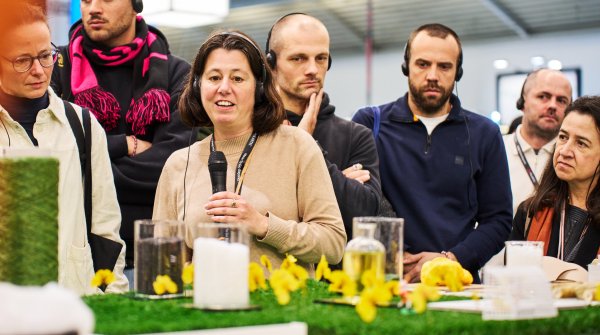Conversation with Brand Strategist and Company Owner Fredrik Ekström at a glance
According to Ekström, the traditional model of consumers passively admiring brands from afar is outdated. Today's consumers expect deeper interaction and want to be co-creators and active participants in brand communities. This shift requires companies to reevaluate their communication, build culture, and foster community around their brand story.
"Brands need to understand that the game plan has changed," Ekström explains. "They need to align insight, strategies and activations into what I call winning game strategies that are more connected to the consumer world." This is extra important when communicating sustainability which usually is approached with rational or informative communication.
He emphasizes that successful consumer-centric sustainability strategies don't happen through single campaigns, but require a roadmap of strategic, creative and operational decisions executed consistently over time.
To bridge the knowledge gap around sustainability in many executive teams, Ekström began tracking consumer attitudes several years ago. His newest two reports are The NXT Sustainable Consumer and The NXT Outdoor Consumer. Rather than focusing solely on past sales data, these reports examine consumer aspirations, status markers, attractions, and anxieties related to sustainability and outdoor activities.
The research, based on surveys of 2,500 nationally representative respondents across Nordic countries, reveals high interest but low knowledge regarding sustainability among consumers. While 8 out of 10 wish they knew more about sustainability, many feel paralyzed by uncertainty and fear of judgment over their choices.
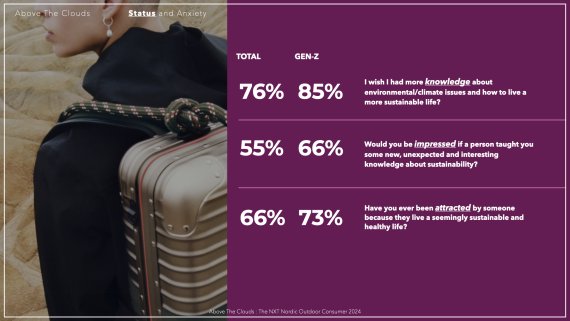
Ekström's research identified three key "green archetypes" among consumers:
- Dedicated Pioneers (12% of the population): Driven by holistic sustainability values
- Anxious Activists (28%): Focused on tangible results of sustainable actions
- Eco Swingers (37%): Attracted to compelling brand storytelling around sustainability
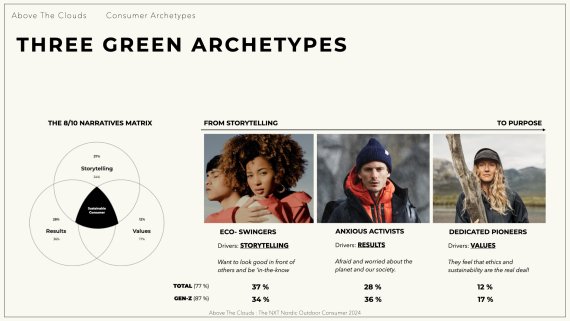
Interestingly, there's a strong correlation between dedication to sustainability and engagement in outdoor activities. This suggests that time spent in nature cultivates a desire to protect it.
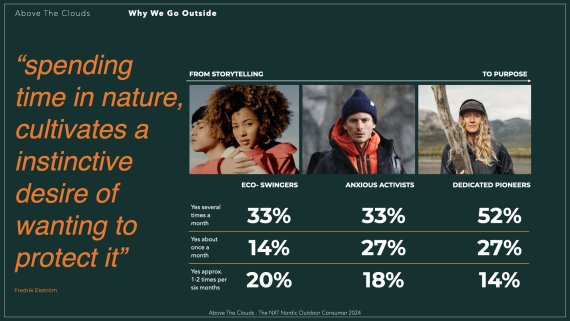
To help brands develop consumer-centric sustainability strategies, Ekström created the "Winning Game Matrix." This tool allows companies to assess their initiatives across different consumer archetypes and areas of impact (social issues, planetary issues, and future trust).
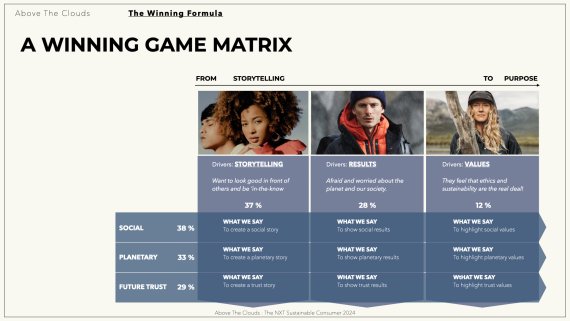
"This is a way to build up a holistic approach, but with the consumer in mind rather than having an internal focus," Ekström notes.
Ekström's research shows strong consumer support for brands that openly engage with social and environmental movements. This is especially true among Gen Z, with 9 out of 10 wanting brands to take a stand and 7 out of 10 more likely to support brands that do so.
Consumers want brands to address several topics among the most important ones are social responsibility, protecting biodiversity, cleaning up ocean pollution, and transitioning away from fossil fuels. However, Ekström cautions that brand activism must be genuine and purpose-driven to be effective.
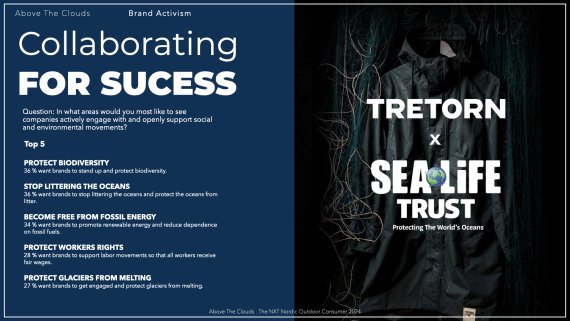
Ekström highlights three important trends for brands to watch:
- From Fandom to Fandom: The shift from passive consumer admiration to active engagement and co-creation.
- New Creative Collectives: The blending of culture with outdoor activities, fostering community and creativity.
- Trailfulness: The intersection of mental well-being and outdoor activities, emphasizing the psychological benefits of nature.
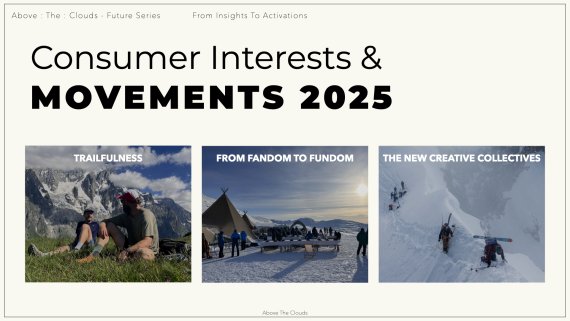
By understanding these trends and adopting consumer-centric sustainability strategies, brands can better position themselves to win in today's evolving marketplace while making a positive impact.
- ISPO awards
- Mountain sports
- Bike
- Design
- Retail
- Fitness
- Health
- ISPO Job Market
- ISPO Munich
- ISPO Shanghai
- Running
- Brands
- Sustainability
- Olympia
- OutDoor
- Promotion
- Sports Business
- ISPO Textrends
- Triathlon
- Water sports
- Winter sports
- eSports
- SportsTech
- OutDoor by ISPO
- Heroes
- Transformation
- Sport Fashion
- Urban Culture
- Challenges of a CEO
- Trade fairs
- Sports
- Find the Balance
- Product reviews
- Newsletter Exclusive Area
- Magazine




